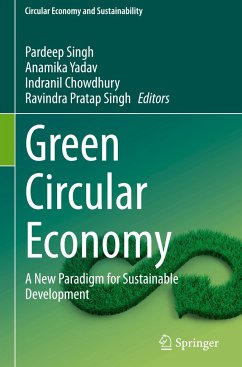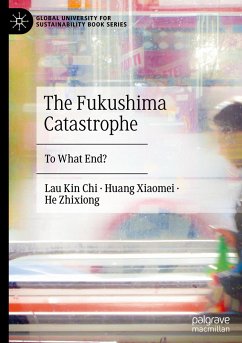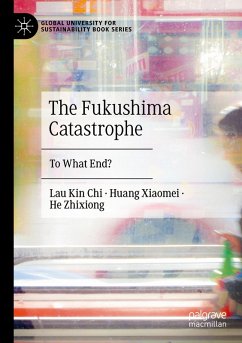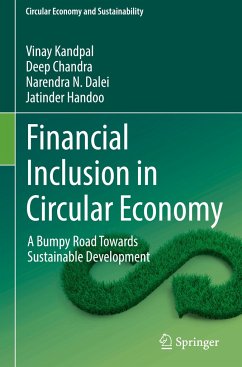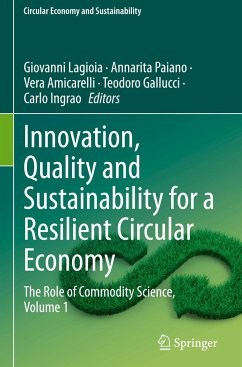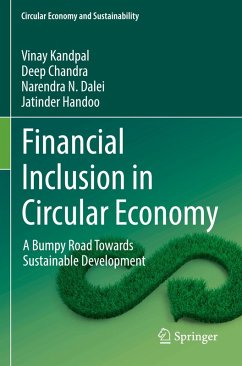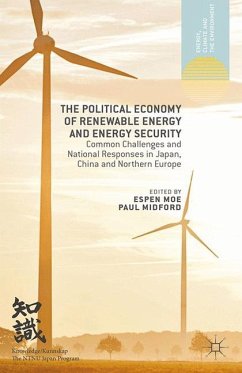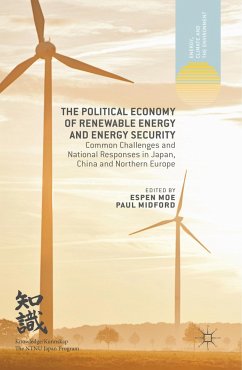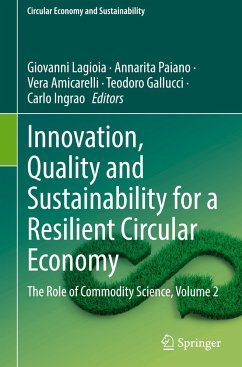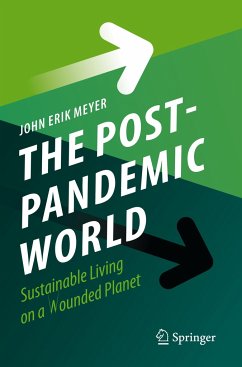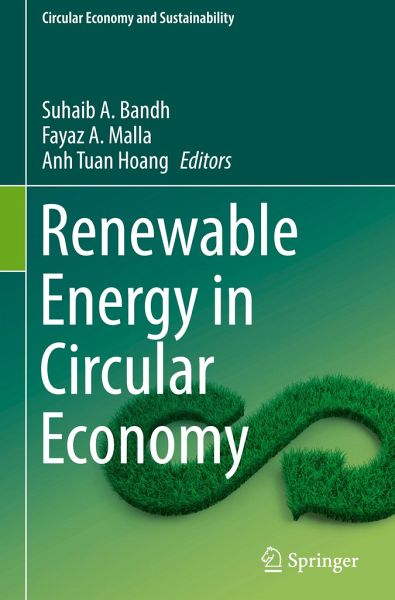
Renewable Energy in Circular Economy

PAYBACK Punkte
46 °P sammeln!
The book provides a comprehensive overview of the technologies and processes involved in renewable energy generation, with a specific focus on their role in improving the circular economy. It offers all the necessary information and tools to help readers select the most sustainable renewable energy solution for different conditions.Exploring real-life examples, the book delves into the practical applications of the circular economy in the renewable energy sector. It takes a multi-faceted approach, examining the circular economy from various perspectives and incorporating methods such as lifecy...
The book provides a comprehensive overview of the technologies and processes involved in renewable energy generation, with a specific focus on their role in improving the circular economy. It offers all the necessary information and tools to help readers select the most sustainable renewable energy solution for different conditions.
Exploring real-life examples, the book delves into the practical applications of the circular economy in the renewable energy sector. It takes a multi-faceted approach, examining the circular economy from various perspectives and incorporating methods such as lifecycle assessment, sustainability assessment, multi-criteria decision-making, and multi-objective optimization modes. Furthermore, the book explores the concept of blockchain, hybrid renewable energy models, technologies, and implementation. It also investigates the critical factors and key enablers that influence sustainable development in this field. By doing so, it not only facilitates the transition to a circular economy but also highlights the shift in recent research, trends, and attitudes towards a more scientifically grounded approach.
The primary objective of this book is to compile research specifically focused on the circular economy in renewable energy. By providing researchers and policymakers in the energy sector with the necessary scientific methodology and metrics, it enables the development of strategies for a sustainable transition. This book serves as a valuable resource for students, researchers, and practitioners seeking to deepen their understanding of energy planning and the current and future trends of biofuel as an alternative fuel.
Exploring real-life examples, the book delves into the practical applications of the circular economy in the renewable energy sector. It takes a multi-faceted approach, examining the circular economy from various perspectives and incorporating methods such as lifecycle assessment, sustainability assessment, multi-criteria decision-making, and multi-objective optimization modes. Furthermore, the book explores the concept of blockchain, hybrid renewable energy models, technologies, and implementation. It also investigates the critical factors and key enablers that influence sustainable development in this field. By doing so, it not only facilitates the transition to a circular economy but also highlights the shift in recent research, trends, and attitudes towards a more scientifically grounded approach.
The primary objective of this book is to compile research specifically focused on the circular economy in renewable energy. By providing researchers and policymakers in the energy sector with the necessary scientific methodology and metrics, it enables the development of strategies for a sustainable transition. This book serves as a valuable resource for students, researchers, and practitioners seeking to deepen their understanding of energy planning and the current and future trends of biofuel as an alternative fuel.



